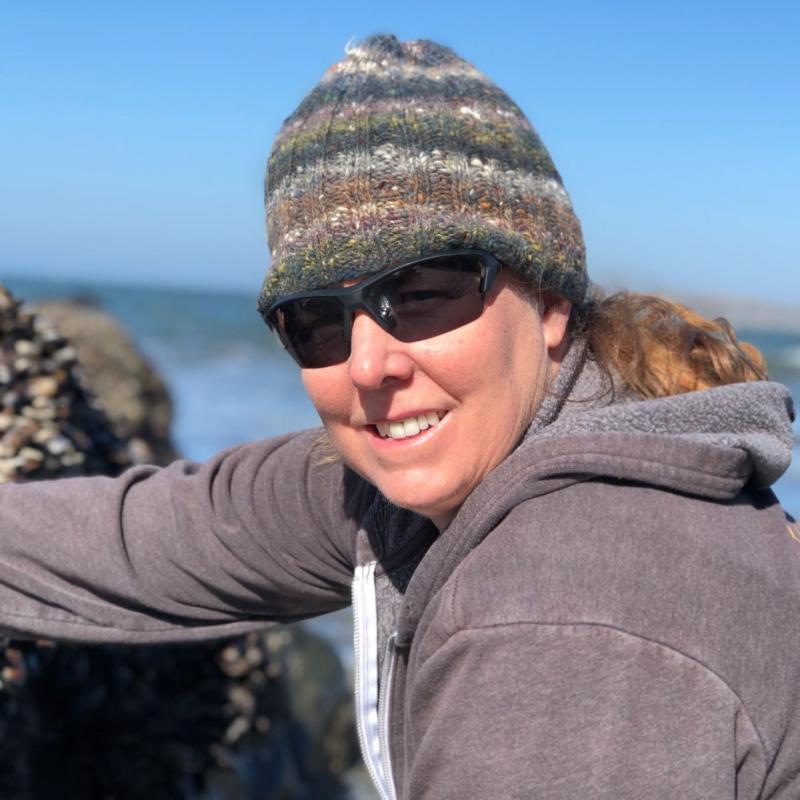Shannon Lee
Lecturer, Department of Biology

“There can be a perception that experts use language almost as a weapon or to assert authority and othering. Promoting student use and command of the language, helps them feel like they are becoming part of the profession, gives them a sense of agency, a sense of belonging.”
School: Science and Technology
Position: Lecturer Faculty, Department of Biology
What courses do you teach?
Invertebrate Zoology
Biology of Parasites
Intro Biology for non-Majors
Marine Biology
Which is your favorite class to teach?
I love all of the classes I teach, but especially those that are smaller in size. We are able to do some skill-building and professional development.
For example, I implemented peer evaluations and self-evaluation, like in a business setting. Students were doing group projects and had to evaluate the dynamics of the group. Some were frustrated at first, but I saw the most improvement in their personal dynamics, and serveral told me that the structure was unlike anything they had ever had in a class and were so grateful for it. Collaboration is so important in science, yet rarely discussed let alone fosters.
Tell us when you first became interested in marine biology. What drew you to it? Was there an instructor who inspired you?
I grew up in San Diego and was at the beach all the time. I was in the tidepools and poking at anemones, digging sand crabs, so it all started very early. Then, in high school, I got to take an elective in oceanography, and that was really great.
Tell us about some of your Inclusive teaching practices?
Science language is off-putting. So, I slow down to take the time to break the words apart into their roots, and then you see lightbulbs go off, and they make the connection to words they already know. This also eases them into a culture of science - where there is a shared and assumed language. There can be a perception that experts use language almost as a weapon or to assert authority and othering. Promoting student use and command of the language, helps them feel like they are becoming part of the profession, gives them a sense of agency, a sense of belonging.
I also am mindful of how I position myself as an instructor - not above students or as an authority, but as a facilitator and guide, or even a curator of their experience through the material.
I really love teaching non-majors. They are less guarded and not afraid to ask out-of-the-box questions. That is super fun as an instructor. It keeps you on your toes and it’s wonderful to say “That’s a great question. Let's dig in and find some answers.”
What have you recently learned from the students?
Having been at this for several decades, I’ve seen waves of students come through. The current cohort of students is much more willing to express where they are emotionally and mentally, which is a great thing to see. Through the pandemic, I connected with them in a different way. I learned more about their personal lives because they shared it with me - it opened me to what they were going through and expanded my empathy. Students are also more open to owning up when something falls short, such as missing a deadline. Interestingly, many students are less stressed about course material and grades, per se, and more stressed about issues such as the big picture, life, and the future. Many are concerned about, or struggling with, basic life skills such as financial literacy and organization (executive functioning) and are deeply worried about global issues.

